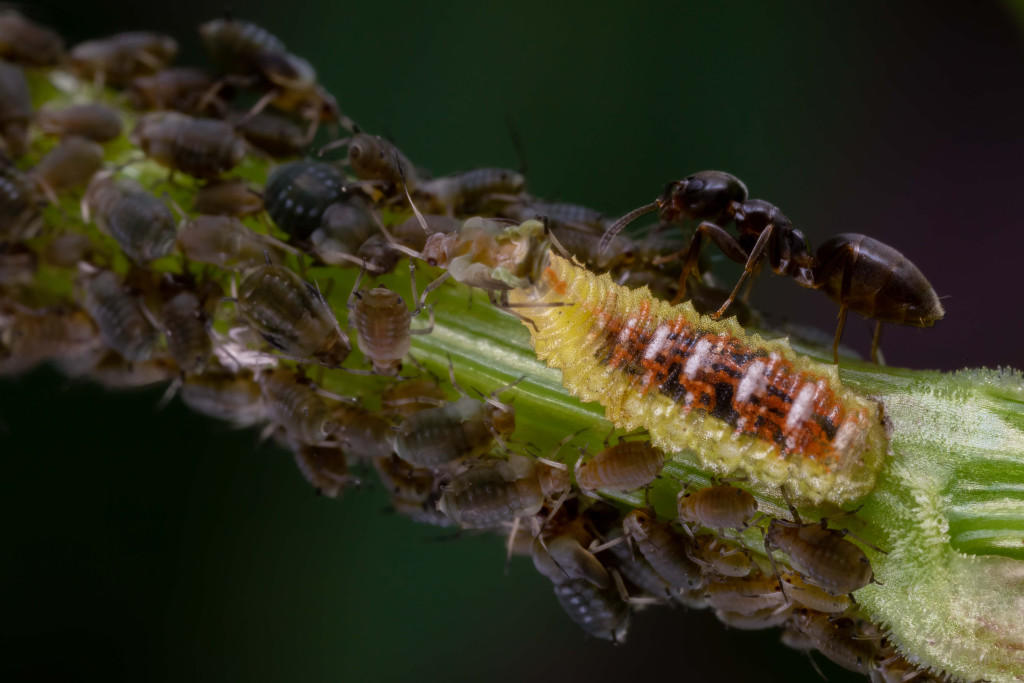Ants raise aphids to harvest their sugar-rich waste secretions known as honeydew.
Enlarge

Photo by Tyler Moore
By Tyler Moore, Bellevue University
With more than 15,000 described species of ants, as noted in “Bolton’s Catalogue of the Ants of the World,” these organisms are among the world’s most successful and represent a total estimated biomass of 12 megatons. They have also long been the subject of amateur naturalists and scientists, with perhaps no behavior more intriguing than the “farming” of aphids.
Aphids are commonly known to gardeners as a pest. They suck nutritious juices from plant stems, causing crop damage and transmitting plant diseases. This plant-sucking characteristic is precisely why ants value aphids.
Ants have been shown to raise aphids in order to harvest their sugar-rich waste secretions known as honeydew. This relationship is symbiotic, because aphid colonies collapse when ants are removed.
So, what benefit do the ants provide the aphids? Ants are not the only species hungry for the sugary rich fluids of aphids. Instead of consuming the honeydew, predaceous insects, such as lady beetles or syrphid fly larvae, squish aphids and suck out their juices. Ants protect their flock of aphids by aggressively warding off aphid predators. In fact, aphids have been shown to secrete dopamine in their honeydew to increase ant aggression.
I watched this syrphid fly larva capture, squish and desiccate this aphid over the course of several minutes. All the while, a pair of ants patrolled the larva and sampled its scents with their antennae.
I did not witness any aggression toward the syrphid fly larva by the ants. Perhaps the single aphid casualty was an acceptable loss. Or, alternatively, perhaps the ants had already returned to the colony with a pheromone trail leading back to the larva. If so, I would not expect the syrphid fly to last much longer.
Even the most voracious insects are no match for a colony of ants.
The post Protecting the Flock – Ants and Aphids appeared first on Nebraskaland Magazine.
















